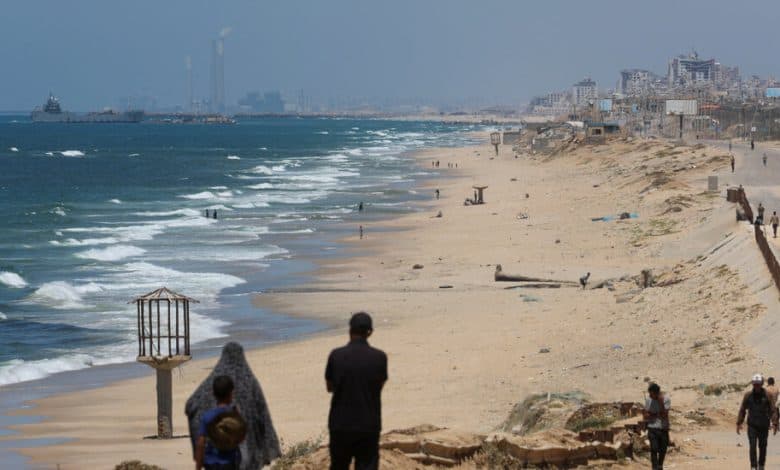No Gaza Aid Delivered Through U.S.-Built Pier Has Been Distributed, Pentagon Says

None of the food and supplies that has entered the Gaza Strip through a U.S.-built temporary pier in its first five days of operation has been distributed to Palestinians by aid organizations, Gen. Patrick S. Ryder, the Pentagon spokesman, said at a news briefing on Tuesday.
General Ryder said that 569 metric tons of aid had made it onto Gaza’s shore but that those supplies had yet to be parceled out by humanitarian organizations.
On Saturday, hungry crowds looted several World Food Program trucks transporting aid that had been delivered through the pier, prompting the agency to suspend deliveries of aid arriving at the pier on Sunday and Monday.
General Ryder also said that after discussions with Israel and the United Nations, alternative routes for the safe movement of staff and cargo had been established. The aid is now being taken to warehouses for further distribution, he said.
“We do anticipate that assistance will be distributed in the coming days, of course, conditions permitting,” he said.
The temporary pier is one of few remaining entry points for aid shipments after Israel’s incursion into Rafah, in southern Gaza, earlier this month in response to a Hamas rocket attack that killed four soldiers on May 5. Israel not only seized the Rafah crossing on the border with Egypt but also closed the Kerem Shalom crossing into Israel. Those were the two main entry points for truck convoys carrying aid overland.
Though Israel has since reopened Kerem Shalom, only 69 trucks have entered Gaza through it in the past two weeks, according to U.N. data. That is a far less than the number of aid trucks that were entering through the two southern border crossings before Israeli troops went into Rafah. That number peaked at 340 trucks a day.
The 569 metric tons that have arrived at the pier so far are a fraction of the amount of aid that was entering Gaza through land routes before Israel seized the Rafah crossing. The United Nations estimates that trucks carrying food to Gaza have been loaded with roughly 15 to 30 metric tons each.
The pier system, which cost an estimated $300 million, became operational on Thursday, after it was connected to the Mediterranean shore in central Gaza. On Friday, the first trucks of aid began moving ashore. So far, however, the operation has fallen short of its goal of bringing in 90 trucks a day and eventually ramping up to 150 trucks.
General Ryder said that more aid was on the way but that the U.S. military was taking a “crawl, walk, run” approach, working out the logistical hurdles and taking into account security conditions. “So I think you’re going to see as we work together the amount of aid increase, and the ability to get it distributed increase,” he said.